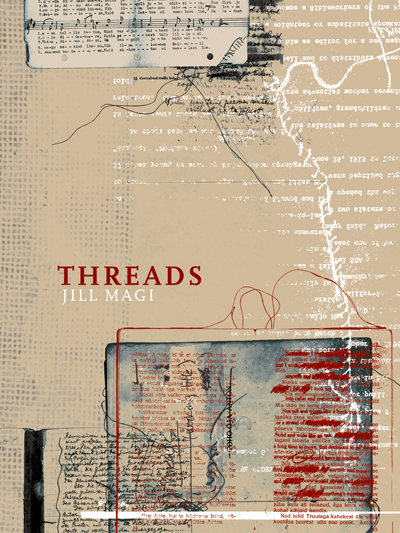What I didn’t mention about Tony Trehy the other day is that he works as a visual arts curator – the hidden hand behind the Irwell Sculpture Trail – and that it is possible to read his work in ways that don’t invoke contemporary poetry at all. (This also has always been the unknowable element in a good deal of New York School writing, where beyond name dropping, the one palpably visible carry-over from the Pop Art of the 1960s seems to have been the use of cartoon iconography.) This positioning of poetry on the edge of writing only appears to be a fairly recent phenomenon – Aloysius Bertrand’s Gaspard, the first prose poetry of the 1820s – seems to be exactly the same sort of thing, something that became poetry only because the category existed & was able to move sufficiently far to incorporate this writing that, frankly, didn’t seem all that much like anything else at the time.
One aspect of the Permanent Avant is this sense of writing as simply a choice, and that it is the larger vision that is the central element of the work of art, which might as easily be expressed through sculpture, music, intermedia, theater, film, whatever. A writer who seems to me to fit this description is Jill Magi, whose new book Threads is just out from Futurepoem Books. One wonders if Magi knows – or cares – that Threads already is the name of a well known book of poems, David Bromige’s 1970 volume from Black Sparrow¹. Normally I might be appalled at something like that, but it’s not apparent to me that poetry is even the right framework through which to read this booklength, uh, poem. Even as the volume has blurbs from Juliana Spahr, Cecilia Vicuña, Ammiel Alcalay & Brenda Iijima (and, if you flip the front flap, Futurepoem as a project has a blurb from Charles Bernstein). Magi herself calls it a book of “prose, poetry and collage” & I find myself thinking of it as a project, a category from conceptual art.
The core of the project is a trip Magi made in 1997 to
Jill Magi has published a fair number of poems over the past decade or so, but none of the ones I’d read before prepared me for the power of this text. It’s spare without being minimal, moving without being in the slightest bit mawkish. I don’t know if it was the force of her project or whether Magi’s work took a transformative leap as she wrote (and it’s conceivable, of course, that one led to the other – which could have occurred in either direction) but there is no question that if you’ve read Jill Magi before and haven’t read Threads, you really haven’t read Jill Magi.
But Threads also makes me wonder what else lies ahead of her as a poet. Projects like this don’t come often, nor easily. The space she is writing in lies halfway between poetry as we’ve known it – I found myself thinking of David Antin’s Definitions for Wendy several times while reading the text, both for the philosophical dimension each book engages & the question of the text’s relationship to life – and the sort of documentary political poetry I associate with writers like Juliana Spahr & Jena Osman. One might trace such poetry back further, to Fluxus & eventually to Dada, but there is a seriousness of purpose, a quietness in the act of description that is quite unlike those genres. And the book has so many sides, so many faces. I made a decision early on in writing this note that I couldn’t really quote one or two passages here – there are so many different kinds that any selection would essentially distort the whole. You can find an excerpt here in the Brooklyn Rail and see pages from the notebook by continually following the links here. But there is quite a bit more to this project than those two excerpts suggest.
¹ Threads was also the name of a chapbook of the poetry of Elizabeth Barrett done by Unicorn Press of Santa Barbara in 1968, something both Bromige and Black Sparrow publisher John Martin were sure to have known, as well as Jane Cooper’s 1978 volume of poems based on the letters of Rosa Luxemburg as well as Maria Landowska’s 1985 volume, subtitled Poetry from a Survivor of Auschwitz.






